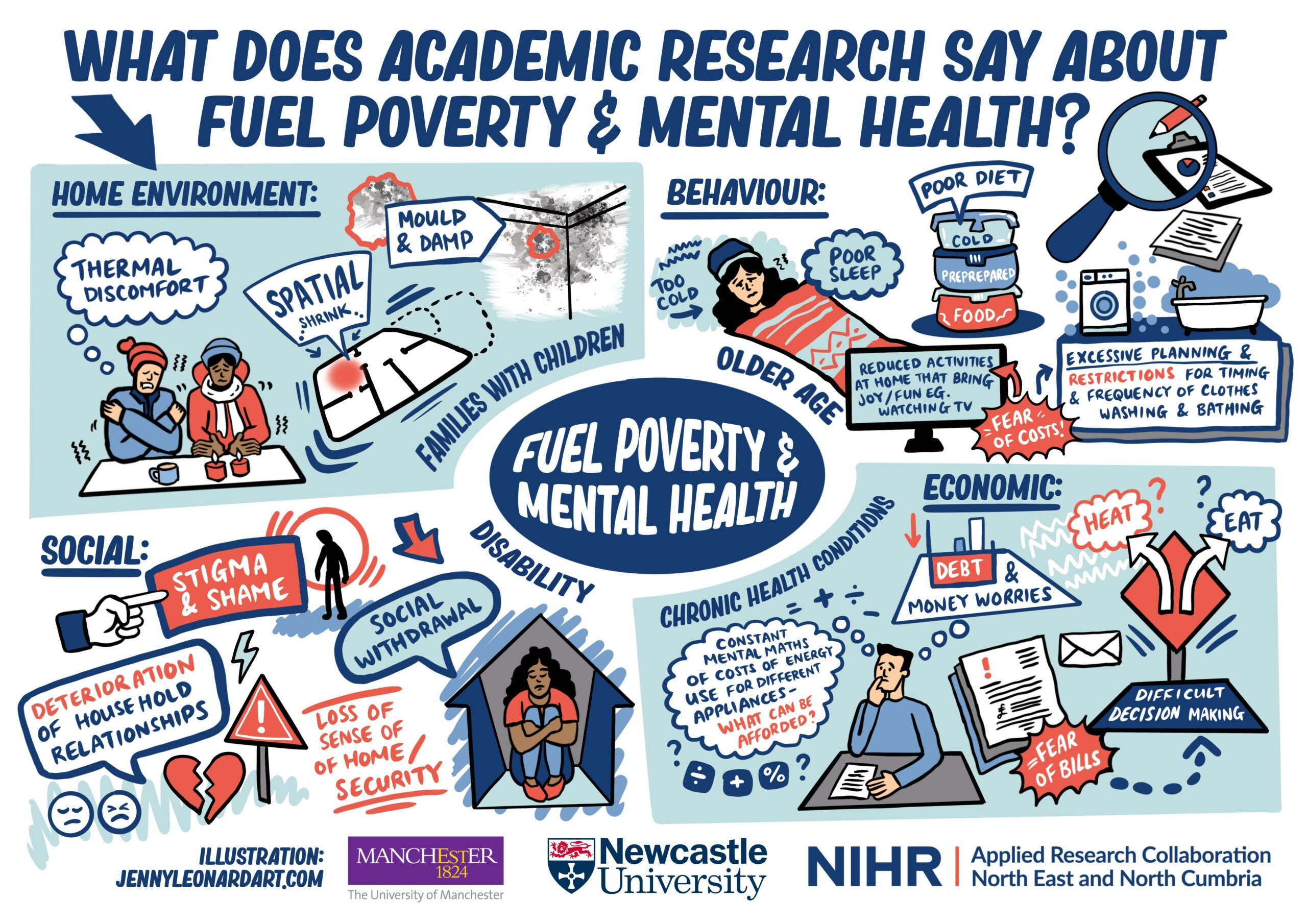Constant mental maths and difficult decisions – new research highlights how fuel poverty affects mental health
How does fuel poverty damage mental health? Reviewing the scientific research.
A study led by Natalie Bennett from the NIHR ARC North East and North Cumbria, and Sam Khavandi from ARC Greater Manchester has explored how fuel poverty can affect mental health.
In this blog, they share their findings...
We are living through a ‘cost of living crisis’, where everyday essentials become too expensive for many people. Growing numbers of people are finding that they are not able to afford the energy they need to do things like heat their homes, turn on the washing machine, cook their food or to shower. We call this ‘fuel poverty’.
We know there are three key drivers of fuel poverty: low income, poor energy efficiency in the home, and high energy prices.
Renters (both social and private), and vulnerable groups such as the elderly, families with children and those with disabilities and chronic conditions are particularly at risk of falling into fuel poverty and at additional risk from its health impacts.
When we think about fuel poverty, and how it feels to live in a cold home, the impacts to physical health are perhaps the most immediately obvious. This includes things like worsening chronic conditions like arthritis, and severe and tragically sometimes even deadly impacts to the lungs from chronic exposure to mould.
However, in addition to these serious physical health impacts, there are a myriad of less often considered, yet arguably more widely experienced and still detrimental ways that living in fuel poverty impacts mental health. Though research on the mental health impacts of fuel poverty is growing, there has not yet been an evaluation of what we know on the topic to date.
Our research
We have been working to collate the research to date demonstrating these impacts to mental health, so we can understand:
- What has been studied to date?
- Are there gaps in what we know?
- What kinds of explanations are given for how fuel poverty impacts mental health?
We searched the global literature base for studies on the association between fuel poverty and mental health, including both quantitative and qualitative studies. We found 48 studies, over half of which studied the UK.
Our findings
Our search revealed links to mental health in four key areas:
- Home environment – including thermal discomfort and ‘spatial shrink’, where people heat and use fewer rooms in their home.
- Behaviour – including poorer sleep and diet, reduced recreational activities and extreme planning of the use of heat and appliances.
- Social – including stigma, social withdrawal, deterioration of household relationships and an eroded sense of home.
- Economic – including constant mental maths and evaluation of the costs of appliances, debt and money worries and difficult decision making.
We worked with groups at Edberts House community centre in Gateshead and a steering group with the ARC Greater Manchester public involvement panel, including representation from their young people’s group, to inform our understanding of the lived experience of fuel poverty and to sense check our findings.
Our discussions with these groups were important in helping us to reflect on our findings and in helping us to communicate the findings of the research.
As part of this work, we developed a graphic visualising the pathways discussed by the studies in our review, which was directly informed by the public contributors.

(Illustration by Jenny Leonard Art)
What’s next?
We will publish an academic journal article from this research which we hope will help highlight the issue to researchers and policy makers.
We hope that the review will encourage further research on the topic, in order to ultimately help us to understand what can be done to both reduce fuel poverty and lessen its detrimental impact on mental health.
To find out more about this work, contact:
Natalie Bennett (formerly Newcastle University) at n.c.bennett@sheffield.ac.uk
Sam Khavandi, Manchester University at sam.khavandi@manchester.ac.uk
published 14th Feb 2024